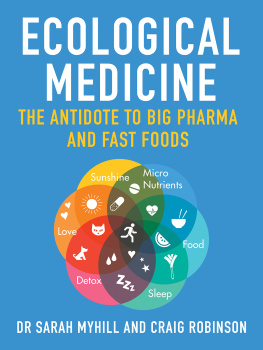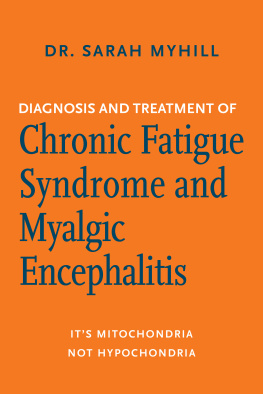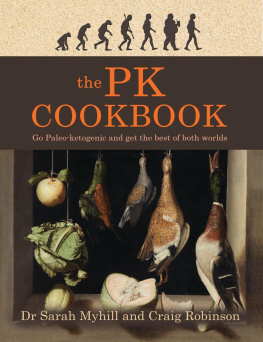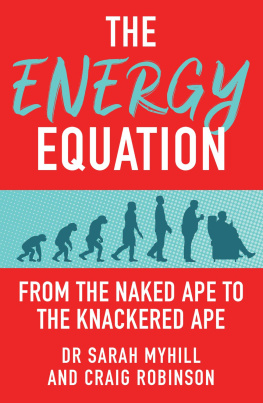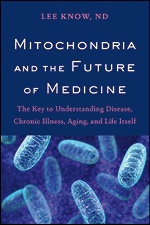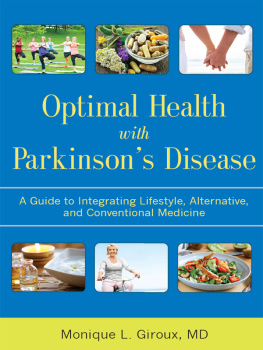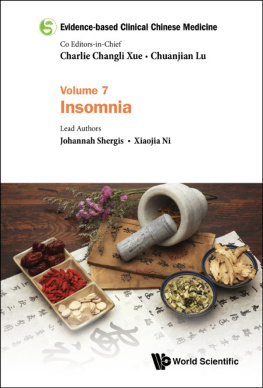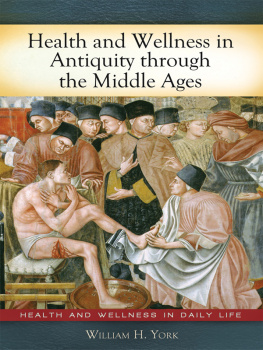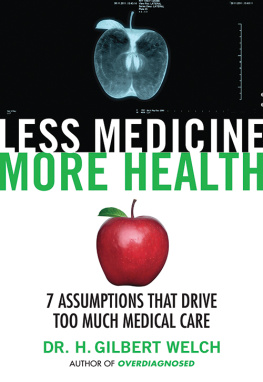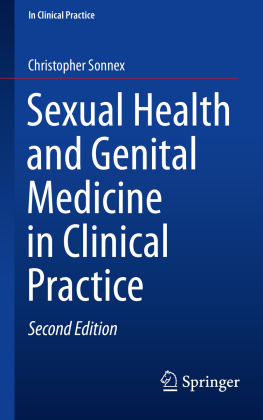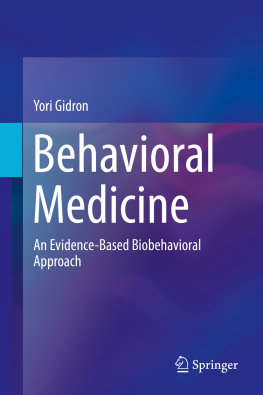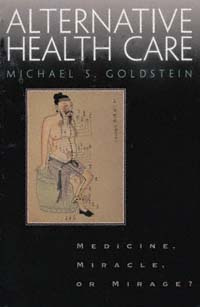ECOLOGICAL
MEDICINE
SM: To my lovely patients, who have been willing guinea pigs, faithful to the cause and most forgiving when my suggestions have not worked. However, in doing so, they have pushed forward the frontiers of ecological medicine.
CR: To the Unknown ME Warrior. In the face of both untold abuse and neglect, the hurt of which is magnified by a cruel disbelief, you have shown in equal measure, a gentle grace and dignity, alongside a fortitude of unimaginable depth. I salute you.
Small is beautiful a study of medical science as if people matter with apologies to EF Schumacher (19 August 1911 4 September 1977), German statistician and economist
Some people find the use of the word patient as derogatory. They prefer clients, but as Dr Adam Kay points out in his entertaining book This is Going to Hurt, it is prostitutes that have clients. The word doctor comes from the Greek for to teach. Doctors should be teachers of health information. So that makes patients simply receivers of such. Not so derogatory after all!
To be a teacher in the right sense is to be a learner. Instruction begins when you, the teacher, learn from the learner, put yourself in his place so that you may understand what he understands and the way he understands it. Kierkegaard 1813 1855, Danish first existentialist philosopher
My education took off when I left medical school for the real world. Simply writing really makes me think further about my medical practice and how best to relay that information to my lovely patients. I so hope you enjoy reading this as much as I enjoyed writing it these were happy days for me. (And me too! Craig)
My education was only interrupted by my schooling
Sir Winston Churchill, 1874 1965

Contents
About the Authors
Dr Sarah Myhill MB BS qualified in medicine (with Honours) from Middlesex Hospital Medical School in 1981 and has since focused tirelessly on identifying and treating the underlying causes of health problems, especially the diseases of civilisation with which we are beset in the West. She has worked in the NHS and private practice and for 17 years was the Hon. Secretary of the British Society for Ecological Medicine, which focuses on the causes of disease and treating through diet, supplements and avoiding toxic stress. She helps to run and lectures at the Societys training courses and also lectures regularly on organophosphate poisoning, the problems of silicone, and chronic fatigue syndrome. Visit her website at www.drmyhill.co.uk
Craig Robinson MA took a first in Mathematics at Oxford University in 1985. He then joined Price Waterhouse and qualified as a Chartered Accountant in 1988, after which he worked as a lecturer in the private sector, and also in The City of London, primarily in Financial Sector Regulation roles. Craig first met Sarah in 2001, as a patient for the treatment of his ME, and since then they have developed a professional working relationship, where he helps with the maintenance of www.drmyhill.co.uk, the moderating of Dr Myhills Facebook groups and other ad hoc projects, as well as with the editing and writing of her books.
Stylistic note: Use of the first person singular in this book refers to me, Dr Sarah Myhill. One can assume that the medicine and biochemistry are mine, as edited by Craig Robinson, and that the classical and mathematical references are Craigs.
You never change things by fighting the existing reality. To change something, build a new model that makes the existing model obsolete
Buckminster Fuller
PART I
Introduction
Chapter 1
The inquisitive doctor
Mankind is fucked We are accelerating towards self-destruction and extinction. Stephen Hawking (English theoretical physicist, cosmologist and author, 8 January 1942 14 March 2018) predicted the extinction of Homo sapiens within a thousand years a blink of evolutionary time.
James Lovelock (English scientist, born 26 July 1919), famed for his Gaia theory, also predicts a bleak future. He states that humans behave like a pathogenic micro-organism, or like the cells of a tumour, as far as the Earth is concerned. Lovelock is a remarkable man; entirely on his own, he invented the electron capture detector in his barn-turned-laboratory, which he calls his experimental station, and which is located in his back garden. In the late 1960s, he was the first to detect the widespread presence of CFCs in the atmosphere.
Doctors should be providing the intellectual imperative to stop this terrible decline. They are supposed to be the brainy elite, caring for us individually and as a population. Instead, doctors are responsible for over-seeing this degenerative process because they have been corrupted by Big Pharma. They are doing this with kindness, gentleness and great humanity. They even claim an evidence-based approach. They daily reassure people that all will be well with their five-a-day fruit and vegetables, that vaccinations can only do good, that cocktails of drugs will prevent heart disease and that the cure for cancer is on the horizon. Doctors fail to tackle the root causes of disease because that is difficult. It means changing our comfortable, addictive and convenient lifestyles. Unpleasant symptoms that are the essential, early harbingers of pathology are suppressed with toxic drugs. The underlying pathology grumbles on unrecognised until the heart attack manifests, the tumour becomes palpable or the dementia irreversible. What a shock! What a surprise! What bad luck, I hear them cry. Doctors are being kind to be cruel.
During my work as an NHS GP I had to wear two hats. With all my patients I would launch into my enthusiastic diatribe to try to identify symptom and disease, causation and mechanism. That was fine until I got on to the difficult stuff that involved self-discipline changing diet, taking exercise and tackling addiction. If the eyes glazed over I knew I was dealing with a Nah dont do all that crap with me, just gimme the drugs type. Out came the prescription pad, on went the NICE Guidelines hat and off trotted the patient, apparently satisfied with his/her quick fix. Thankfully my medical life was blessed by patients who thought as I did. They immediately saw the logic, grasped the difficult straws and started to put in place the troublesome interventions.
Through a panoply of natural approaches, such as diet, nutritional supplements, sleep and exercise, detoxification regimes and other such, I watched intractable arthritis resolve; migraines, irritable bowels and bladders melt away; fatigue syndromes, psychoses, autisms and asthmas disappear. Suddenly I thought I could change the World of Medicine. What would you do in my shoes? Being naturally gobby, I shouted it out so all could hear. And that is when my real troubles began.
Up until 2000 it never even crossed my mind that doctors could be interested in anything other than doing their best to cure their patients. It never occurred to me that doctors would not want to know about such safe, simple and effective medical interventions. It came as an intellectual tsunami to realise that not only did many doctors perceive me as a trouble-maker who undermined their authority, but so did the medical authorities themselves, from Health Boards right through to the General Medical Council (GMC), the UK regulator of doctors. They did not want their intellectually easy, drug-based, simple algorithms for management challenged. In their treatment of asthma, patients could be dismissed first with the blue inhaler, then with the brown inhaler and, for difficult cases, with both. Not only does this get patient out of the surgery in less than five minutes (a statistical triumph) but s/he also makes megabucks for Big Pharma. To my nave amazement, the Establishment reacted furiously to the presumptuous, precocious, inquisitive doctor who was kicking the intellectual foundations of their ivory towers.
Next page
